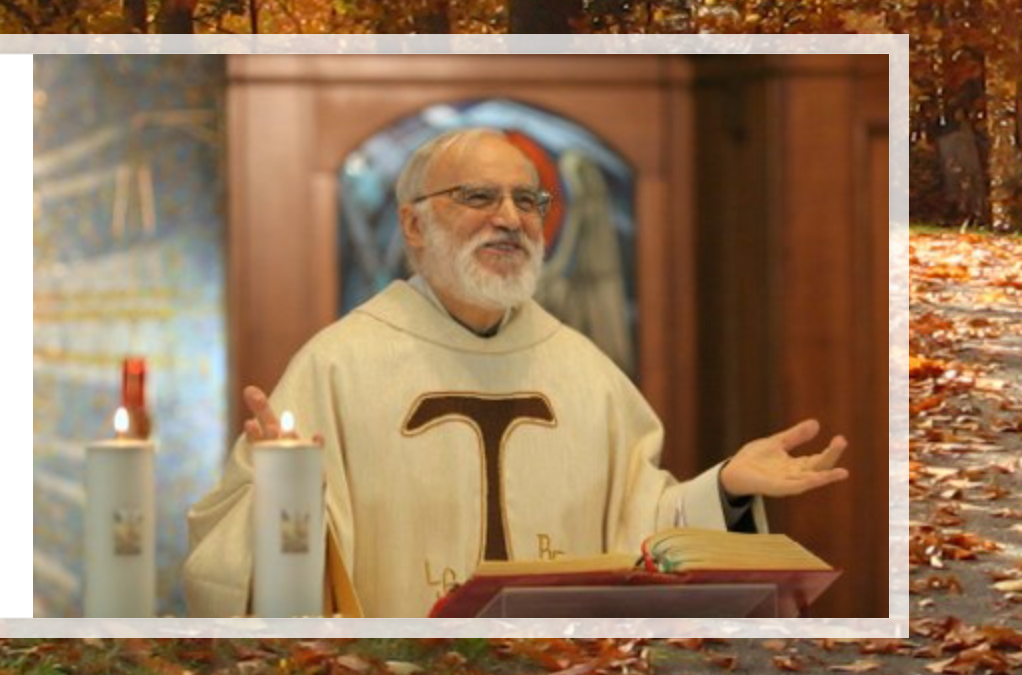I, for one, would be petrified! Yet…
- A lot of people try preaching to the Pope via personal letters, email, or websites.
- Not many have ever actually be invited to do so.
- Even fewer have done it for three popes.
Capuchin Raniero Cantalamessa, OFM bears the title of“Preacher to the Papal Household.” He must be well respected! Three successive Popes over a 40-year span, Saint John Paul II, Benedict XVI, and now Pope Francis, have looked to him for spiritual nourishment in their annual Advent and Lenten Sundays of recollection.

Why?
See for yourself
This year he is guiding Pope Francis and the people of the Papal Household with reflections on the Eucharistic Mystery.
I offer these excerpts from the first of his 2022 Sunday Lenten reflections.
Introductory thoughts
He quotes St. John Paul II, “Christians must rediscover and always keep alive “the Eucharistic amazement”. For this purpose our reflections would serve: to rediscover the Eucharistic wonder.”
- “The Eucharist is the presence in the history of the event that has forever reversed the roles between victors and victims.”
- “The Eucharist offers us the true key to interpretation of history.”
- “History reveals what once happened and how it happened, the liturgy ensures that the past is not forgotten; not in the sense that it makes it happen again, but in the sense that it celebrates.:
- “Thanks to the sacrament of the Eucharist we mysteriously become contemporaries of the event; the event is present to us and we at the event.”
The Liturgy of the Word
- “In the earliest days of the Church the Liturgy of the Word and the Liturgy of the Eucharist were not celebrated in the same place and at the same time.”
After a fascinating explanation of why (See also “House Churches”), he continues…
- “When we read Scripture at home or study it in a course, it serves to help us know the Bible better.”
- “But when we read it in the Liturgy, it serves to help us know better the One who makes himself present in the breaking of bread, and each time it brings to light an aspect of the mystery we are about to receive.”
- “This is what stands out in the very first Liturgy of the Word that took place with the risen Christ and the two disciples of Emmaus. As they listened to his explanation of the Scripture, their hearts began to soften in such a way that they were able to recognize him when he later broke the bread.”
- “We’re not only hearers of the word, passive recipients as it were, but we ourselves are the ones who are spoken to and who act. We’re called to put ourselves in the place of the people in the story.”
(What transformed St. Vincent!. See also St. Vincent’s way of reading scripture.)
What happens when you see yourself in readings
- “Over the course of the history of the Church, some epoch-making events took place as a direct result of listening to the readings during Mass.”
He offers two examples…
- Anthony put himself in the place of the rich young man Jesus told to sell everything. That’s how the monastic movement began in the Church.
- Many centuries later Francis heard the gospel “Take nothing for the journey” (Lk 9:3). Immediately he turned to his companion and said, “Did you hear that? This is what the Lord wants us to do.” And thus began the Franciscan Movement.
Let’s take the Sunday readings personally
- Imagine yourself as one of the people in the passage.
- What would you feel like?
- Would anything challenge you?
Originally posted on Vincentian Mindwalk







During my first stay in Rome, Father Cantalamessa gave a weekly televised reflection late on Saturday afternoon on the next day’s Gospel. We watched him regularly. He really is an excellent preacher, simple but profound.